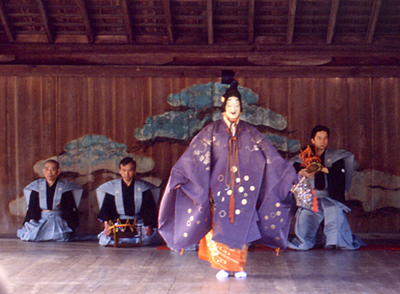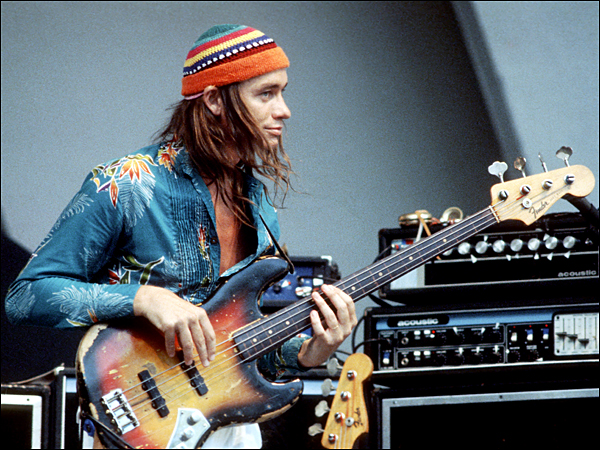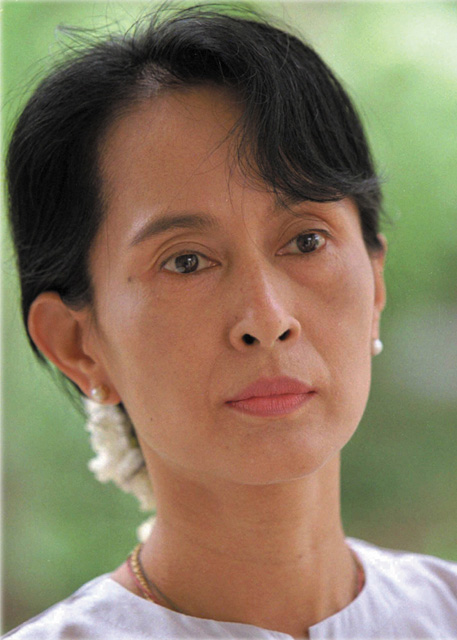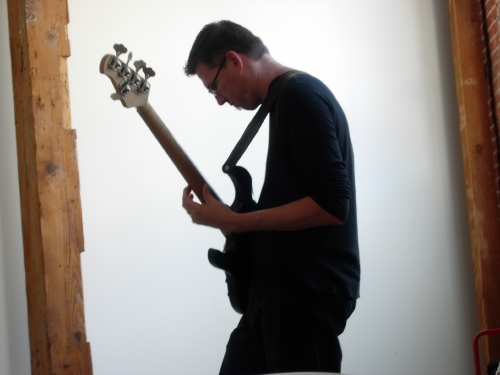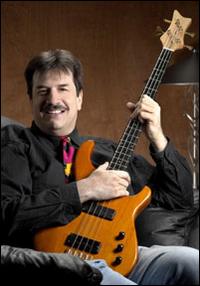
I was lucky enough to study with electric bass great, Jeff Berlin a couple of times throughout my life; while I was at Musicians Institute (although I was 18 and intimidated and mostly just sat and listened to his playing), privately at The Bass Centre, when it was near Laurel Canyon (now only in London), and lastly when he taught for a year at CalArts, right before he started his Players School in Clearwater, FL.
He is, without a doubt, one of the top-two, best pedagogical experiences I have ever had for tonal improvisation. (Gary Willis and him are tied as far as I'm concerned. Both an extreme wealth of information.) I still work on the material he gave me 15 years ago; partly from procrastination on my part and mostly because of the overwhelming amount of information to absorb!
Jeff's material is not always the best in my opinion, but his playing is undeniable. A true master. Forget what people think or say about him and listen to what he plays, it is of the highest caliber and unlike any other bass player out there. No licks, all idea-based improvisation, and all with a deep knowledge of harmonic thinking.
Listen: Bass Solo on "Manos de Piedra"
Listen: Bass Solo on "Water On The Brain Pt.2"
Listen: Unaccompanied Bass solo "Dixie"
As an extra: There is a lot of bullshit reactions on the internet about Jeff (from people who don't know Jeff, or have ever met him quite frankly) and some of his pedagogical beliefs: not using metronomes, fretless bass, 5 & 6 string basses, anti-tablature, and so on. The fact of the matter is that these are his truths and he is passionate about them. A lot of people thought Charles Mingus or Miles Davis were a dicks as well. Doesn't negate their genius, end of story.
I have to say when I studied with him, I was (and still am) a 5-string, fretless bass player and you know what? He called me on it and I explained that this is what I wanted to do (I had been playing fretless exclusively for 4 years in 1994, when I last studied with him. I didn't even own a fretted bass from 1990 to 1996). In the end, he told me, "To each his own" and talked about the extra work to get your ears developed and a couple of lessons later gave me my biggest compliment by saying that I "didn't sound like Jaco". I think that is THE highest compliment a fretless player can hear after so many were subjected to third-rate Jaco clones for so many years.
Also, on the matter of metronomes, even though Jeff doesn't advise using metronomes*, I have used metronomes all throughout my practice time, clicking only on 2&4, only on 1,2,3, or 4, etc. I think they can help a bit, but I also think that using a metronome hasn't been the major reason for success in my time feel. Over the last couple of years, I have become a bit ambivalent about them. I attribute "good time" more to the learning and thinking in subdivisions that studying Indian Tala has taught me, i.e.: What speed (subdivision) are we in? 2 speed (1/8th), 4-speed (1/16th), 3-speed (12/8)? I think that in thinking in this way, It has become easier to play with metronomes.
Let's be clear: That is the opposite effect of what is supposed to be the prescribed course of "playing w/ metronome=good time".
My observations.
*(He's hardly the only one. Tabla master, Swapan Chaudhuri also told his tala class on the first day not to use a metronome; as well, I heard West African drummer Alfred Ladzekpo tell his class to listen for speeding up and slowing down instead of using a metronome)


